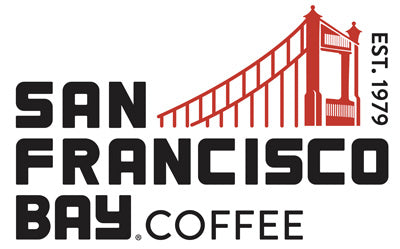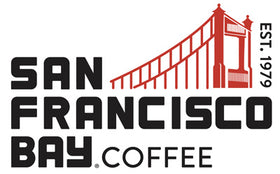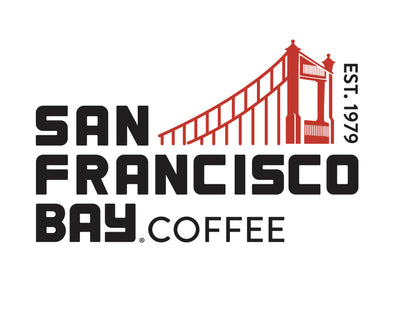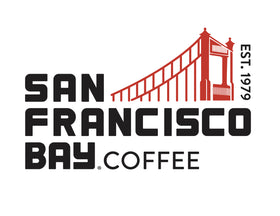How to Make Coffee Less Bitter: 4 Pro Tips

That first sip of morning coffee should be a moment of pure pleasure—not a grimace-inducing disappointment. Yet, for many coffee lovers, bitterness remains an unwelcome guest in their daily cup. At San Francisco Bay Coffee, we believe everyone deserves to experience coffee at its best: smooth, flavorful, and free from harsh bitterness.
The good news? Most bitter coffee issues can be solved with simple adjustments to your brewing process. In this guide, we'll explore why coffee develops bitter flavors and share professional techniques to transform your morning ritual from bitter to beautiful.
Why does my coffee taste bitter?

Several factors can make coffee taste bitter:
-
Over-extraction: Brewing too long or with water that's too hot pulls out more bitter compounds from the beans.
-
Grind size: Coffee grounds that are too fine can be extracted too quickly and become bitter, especially for brewing methods like French press or drip.
-
Water temperature: Ideal brewing temperature is 195-205°F (90-96°C). Too hot can cause bitterness.
-
Coffee beans: Darker roasts naturally have more bitter compounds, and some varieties are inherently more bitter than others.
-
Coffee freshness: Stale coffee often develops bitter notes.
-
Dirty equipment: The buildup of coffee oils and residue can impart bitterness.
-
Water quality: Poor water quality or heavily chlorinated water can affect taste.
How to Make Your Coffee Less Bitter
1. Water Temperature Precision

The ideal brewing range of 195-205°F (90-96°C) is critical because temperature directly controls the extraction rates of compounds. Dark roasts extract more efficiently, so they benefit from the lower end (195°F), while light roasts need higher temperatures (205°F) to properly extract their more tightly bound flavors. People commonly use boiling water straight from the kettle, which at 212°F overextracts bitter compounds. Using a temperature-controlled kettle or waiting 30-45 seconds after boiling makes a significant difference.
2. Grind Size and Consistency

Each brewing method requires a specific grind size because of how water interacts with the coffee:
-
Espresso: Fine (powdery) - water is forced through quickly under pressure
-
Pour-over: Medium - water passes through in 2-3 minutes
-
Drip machines: Medium - similar contact time to pour-over
-
French Press: Coarse - longer immersion requires larger particles to prevent over-extraction
Grind size directly impacts bitterness because finer particles have exponentially more surface area, allowing water to extract bitter compounds faster and more completely. Inconsistent grinding creates a mix where fine particles over-extract and become bitter while larger chunks remain under-extracted, resulting in a cup that's simultaneously bitter and lacking in flavor.
3. Coffee-to-Water Ratio
The standard "golden ratio" is 1:16 (1g coffee to 16g water), but adjusting to 1:17 or 1:18 can immediately lower bitterness while maintaining flavor. Measuring by weight rather than volume dramatically improves consistency, as coffee beans vary in density. Different methods benefit from different ratios:
-
Espresso: Concentrated at 1:2
-
Pour-over: 1:15-17 depending on bean and preference
-
French Press: 1:15-16 is typical
With less coffee (a weaker ratio like 1:18), each water molecule has more opportunity to continue extracting compounds from the coffee grounds. An extended extraction pulls out more of the bitter compounds that dissolve more slowly, particularly the plant phenolics and certain alkaloids.
4. Water Quality Specifics
Since water makes up more than 98% of your cup, its composition significantly affects extraction. If you’re concerned about water quality affecting your coffee, try brewing with a quality bottled spring water as a test. If you notice a significant improvement compared to your tap water, water quality may be the culprit. The simplest fix is to use a standard carbon filter pitcher (like a Brita or PUR), which removes chlorine and reduces some minerals. While not perfect, this improves most municipal water. Other options include using a combination of filtered and distilled water with mineral additions. Some coffee shops use a 50/50 mix of filtered tap and distilled water.
Find Your Perfect Coffee Match with San Francisco Bay Coffee

You now have the knowledge to conquer coffee bitterness once and for all. Remember that great coffee is about balance—finding that sweet spot where flavors shine without harsh edges. Every variable matters, from ratios to water quality, and small changes can yield remarkable results.
At San Francisco Bay Coffee, we understand the pursuit of the perfect cup. Our family has dedicated decades to sourcing exceptional beans and developing roast profiles that minimize unwanted bitterness and maximize flavor. We've done much of the hard work for you.
Ready to experience the difference? Browse our collection of premium coffees and find your perfect coffee match today.



